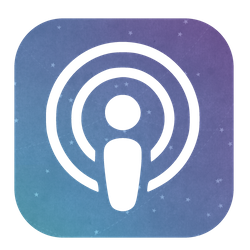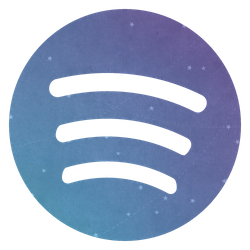episode 39
What Your Intake Form Can Tell You About Your Prospective Client
Today Sam & Karyn discuss using your intake form to gain insight about your prospective client so you can prepare for discovery calls.
Episode 39: What Your Intake Form Can Tell You About Your Prospective Client
Show Notes:







Episode Transcript:
Karyn Paige, Sam Munoz
Sam Munoz 00:00
What are these like public metrics, public things that you can see to start gathering some information about what season of business they might be in their potential willingness to invest in something like this? I mean, this is just straight up math, again, assumptions, but also an awareness in your head of their own value basis. So for example, if they have a program that’s $3,000, let’s say they’ve got 20 testimonials. Okay, so that is someone who is aware of the value that they have the likelihood that they’re going to value you is higher, right? Because they’re not someone that’s out there undervaluing their own services, and just from a money perspective, if they’ve got 20 testimonials, and we’re assuming that all those people paid for the program, I mean, they have a healthy business model, right. So that can inform their potential capacity to invest in your higher level services. I feel like that’s twofold, right? It’s like, if they’re valuing their stuff and their work highly, they’re already in the mindset of valuing expertise. Welcome to Making website magic where we empower women to step boldly into their web design, businesses follow their intuition and claim the success they’re worthy of. I’m Sam Munos.
Karyn Paige 01:14
And I’m Karen Page, where the Tech Wizards behind Sam Linnaeus consulting and the making website Magic School of Business. Were two women here to talk about what it actually takes to run a web design business that’s aligned with your vision.
Sam Munoz 01:27
Spoiler alert, it probably isn’t what you think it is ready to hear about everything from refining your business vision, networking with intention and creating a magical client experience.
Karyn Paige 01:37
Let’s do it.
Sam Munoz 01:43
Well, hello there, Karen. Hey, Sam,
Karyn Paige 01:46
how are you?
Sam Munoz 01:48
I’m feeling really, really good. today. I’m excited about our topic for today. I’m also just feeling a lot of like positive creative energy this week, I don’t know what it is, I don’t know if it’s a moon thing. I don’t know if it’s, you know, just business season. But I feel really excited, really positive. And I’m looking forward to what we’re going to be talking about today, which is what your intake form can tell you about your prospective client, because I think that we might make some mindset shifts here and also open our listeners eyes to just different ways to use the tools that they have in their business to give them more info, and to help them prepare for discovery calls. So I think that that’s really cool. And it’s like a secret sauce tip.
Karyn Paige 02:29
Okay, so as usual, every time we have a new topic for a podcast, the real question is, why are we even talking about this in the first place? Right? So this topic of what your intake form can tell you about your prospective client is directly linked back to Episode 37, on how to have a quote unquote, successful discovery call, right? Because the intake form is the layer before the call, right? So for thinking about the pre client journey, this is a little bit of information that you can get that can help you prepare for the call. And preparation is really a key element of feeling confident on the call,
Sam Munoz 03:09
right? And that’s what we talked about in that episode was just how you can prepare you know, energetically prepare your mind prepare an outline, we talked about creating, like common connections with people connecting with our human, all of those things. And yes, we mentioned this briefly. But once we said that, we were like, Yeah, we need an entire episode around the intake form, because there’s so much that we can glean, I love the idea of using it as a tactic for kind of sleuthing about your potential client. It’s kind of like when you are interested in someone in a relationship, right, you kind of do a little bit of a Google search. Apparently, this foot people do at least this is what I’ve seen on TV. So it’s like that sweet thing that you know, just understanding who they are and what they are doing and all those things. And in today’s episode, we’re going to be talking about what the forum can tell you. And I do want to give like a caveat. We’re not really talking about strategies and like what kinds of questions to ask necessarily, but just what questions could give you information that you can take and take with you to the call. So you’ve got a little bit more on your side, and it’s not like you’re going in blind, this isn’t a blind date, necessarily. You got a little info to work with,
Karyn Paige 04:17
right? And kind of in tandem with that we’re definitely not advocating for like an intake form that is miles long, right? This is very much like, what season is your business in and kind of let that inform that because if you’re not currently in a place where you’re getting bombarded with Discovery call appointments, right? You might not need to weed people out as much. So perhaps thinking about like, what sees it as my business and my at a place where I could benefit from getting as many discovery calls as possible, right, maybe, you know, consider the length of your intake form related to the barrier to entry of getting people on the
Sam Munoz 04:57
call itself. Yes, which all stems from Like that pre client journey episode that we did. So that’s episode 29. If you haven’t listened to that one, definitely check that out, like lowering the barrier to entry, making it easier for people to become prospective clients in the first place and then become a client later. I do think that we should have a podcast episode later about that concept of weeding people out ahead of time, because I think that there is maybe a misconception or just unfounded strategies that aren’t taking into account your season of business that do say your intake form needs to have 15 questions on it, and it needs to dive deep into their business and all of that stuff. And really, the things that we’re talking about today, the sleuthing the information that you can glean from an intake form can actually really be found out with like maybe two to three questions at the very most, and not all of them being like text areas. So that said, one last little caveat before we get into what you can glean from an intake form is just an awareness and a consciousness that what we’re doing here is making a lot of assumptions, right? Because we’re not necessarily asking these questions. In particular, we’re taking information and doing our sleuthing, right. And so of course, just like in that scenario, where you’re looking someone up online, you don’t have the full picture. But you can start to get an idea of who this person is that you’re going to be speaking with maybe where their businesses where their website is, all of those kinds of things, understanding that you’re really making a lot of assumptions and going into the call, you know, with the awareness of what those things are, but also allowing your client to speak for themselves and fill in the broader picture.
Karyn Paige 06:33
I love that. So it’s like maybe an intake form step within the pre client journey. Let’s just say, Okay, we’re gonna make some assumptions here, but then we’re going to confirm or debunk those assumptions on the call. So let’s talk about some of the things that your intake form can tell you.
Sam Munoz 06:50
Yeah, I think this is so again, it’s like put on your sleuth hat, put on your researcher hat, you know, if you’re the type of person that like, learns information and like goes and Google’s a bunch of stuff like that’s the hat you want to be wearing. That’s the energy.
Karyn Paige 07:04
Yeah, very common. San Diego. Yes, exactly. Huge brim huge brim?
Sam Munoz 07:09
I feel like the first question that is so helpful to have on an intake form. And I feel like most of us have it on there is a question that says like, what is your current website URL? Or do you already have a website? But I love asking what’s your current website URL, and then in parentheses, saying, leave blank if you don’t have one, or like, Na, if you don’t have one, because that kills two birds with one stone like asks the same question and one, but let’s talk about when someone sends that information. So they say My website is domain.com. What can we do with that information to help us prepare for the call? That’s something that’s in their intake form,
Karyn Paige 07:44
immediately go visit that delay? Like, hello, yeah, let the sleuthy begin. That will tell you so much. First of all, it’s like do they have a website or not? Right? So you can already start to make associations on what you might need to offer them? Like, is this a redesign? Or is this a from scratch build, right?
Sam Munoz 08:04
So let’s start with the scenario where they don’t have a website, what kind of stuff can that tell us about our prospective client, before we even get on the call, if they don’t have a website,
Karyn Paige 08:12
if they don’t have a website, their season of business is spring, it’s brand new, it’s brand new, and add layer deeper, they may not have any content, they may not have an idea of the vision of what they need, their business model still might be a work in progress,
Sam Munoz 08:30
or they could be an in person business that has never gone online. And that is kind of like a new. Again, it kind of like that spring chicken like a new season of business. And because of that, they may very well may not have assets like branding, colors, typography, content, headshots, photos of their products, like all of those things that we get stuck on in the process, right, where we’re like, oh, we need all this stuff from our clients. And we get stuck in that area, because they’re stuck in their business. And we talked about that, in an episode all about Client Onboarding. I really, really love thinking about like, if they don’t have a website, yet, they may be brand new to business, or they may be brand new to the online world. And that’s going to help you guide the conversation when you have that discovery call, which is why this is important information to have ahead of time, so that you can prepare, because we don’t want to do some things on the call knowing that they don’t have a website, we don’t want to overwhelm them.
Karyn Paige 09:27
Right. Okay, so you just pointed out something good, which even kind of like debunked my own assumption is like, just because somebody doesn’t have a website doesn’t mean that their businesses in phase one, it just means that their online presence for their business is in phase one, right? Because, again, like you could ask another question of like, what season is your business in like, how many years have you been in business, etc, etc. And that could give you another layer of information, right? Like if they don’t have a website, but they’re, they’ve been in business for three years. That means that clearly they’re doing something thing, right? They’ve got clients coming in things of that nature. So that doesn’t mean that like, they’re not ready to take something to the next level, or they don’t have any idea of what their business model is. So,
Sam Munoz 10:11
absolutely. And again, it’s like you’re making assumptions, you’re also kind of just like gathering information. And I love this idea of like, you take the intake form, which has like some simple questions to kind of get things rolling in your head and give you a little bit more preparedness than just getting like their name and email address. And then maybe you’re filling out your outline ahead of time, your discovery call outline, and just like adding your notes in things to ask them about, like, if they do have a website, let’s transition to that side of things is like, maybe you can check out how many programs they offer, if they’re a content creator, or something like that. Or you can see, you know, what is their social media presence? What are these like public metrics, public things that you can see, to start gathering some information about what season of business they might be in their potential willingness to invest in something like this, if they sell I mean, this is just straight up math, again, assumptions, but also an awareness in your head of their own value basis. So for example, if they have a program that’s $3,000, let’s say, let’s say it’s a $3,000.02 month program, they’ve got 20 testimonials. Okay, so that is someone who is aware of the value that they have the likelihood that they’re going to value you is higher, right? Because they’re not someone that’s out there undervaluing their own services, and just from a money perspective, if they’ve got 20 testimonials, and we’re assuming that all those people paid for the program, I mean, they have a healthy business model, right. So that can inform their potential capacity, financially to invest in your higher level services. I feel like that’s twofold, right? It’s like, if they’re valuing their stuff and their work highly, they’re already in the mindset of valuing expertise.
Karyn Paige 11:50
Yes. And again, like, there’s so much you can get from that, like, if they’re that type of person, they probably really need to take their business to the next level. And they need their website to support that, right. So they’re probably more ready to make an investment because they’re like, I know that this is going to help my business grow. So I made this a lot.
Sam Munoz 12:11
Yes, it’s so funny, because we’ve talked about like one question that you can ask on your intake form, and you can get so much information from that. So if you’re listening to this, and you’re like, I don’t actually ask them if they have a website, or I don’t ask them for their current website, invitation to add that to your intake form right now, because you can get so much information just from their website. So let’s transition to another type of question or another piece of information we can gather from an intake form, which is like, what are your goals? You can keep it broad, right, but understanding their motivation for coming onto the call in the first place, or you know, asking them like, why do you need a website? Something like that? Why are you interested in working with us? How can we support you? And kind of open ended question that just allows them to share about their vision? I think we used to ask that for the SMC studio questionnaire was like, What is your digital universe vision? I think that it maybe it’s still on there. You know, it’s just like, open ended, like, tell me about what you’re looking for. So I’ve got an idea and how it aligns with your goals does not have to be 15,000. Questions. Yeah.
Karyn Paige 13:11
And, again, like this is such an open ended question, that there’s a lot of space there for interpreting what their response is, right? Because if someone’s like, my goal is to launch this new product before the holiday season. Because like, I have an urgency here. Right. Okay. Well, that lets me know, that timeline is going to be very important to them, something you could talk about on the call. Yeah. And that they might not be Lolly gagging because the timeline is not flexible. Whereas if someone’s like, you know, I just, I just really think that I need this. I feel like this is time for me to have a website. Okay. Yes, that’s great. That shows that you’re ready. And it all like something that could also be a factor is maybe their timeline is a little loosey goosey, which my indicate some openings for like project like scope creep, or pushing back deadlines? Right. So that is literally like when we’re talking about assumptions? We don’t know. We can’t prove that until we talk to them. But that’s a good like baseline idea of like, what if the goal is really, really clear, and timeline based, that gives you a lot more information about your scheduling and things like that?
Sam Munoz 14:19
Yeah. And I love that it opens you up to asking more questions on the call, like, you can start to make some interpretations. And using the permission based approach that we talked about in a previous episode, you know, saying like, Hey, I saw that you mentioned that you have a goal, a business goal that you shared in your intake form of wanting to launch a brand new product. Can you tell me a little bit more about that? Would it be okay, if we talked about that a little bit more. And then again, you can like guide the conversation, you can understand their own awareness of their business. I want to put like a finer point on what you said too, because it’s like, when your clients have a clear vision, it helps you build a better website, sometimes when their vision isn’t so clear, and it’s like they are expecting the website to kind of fix the lack of vision, it can be very hard for us to do our job, right? Because it’s like, I need your copy. I don’t know what to say in my copy. Okay, well, I’m trying to build a website for you. And I would love to be able to help your vision come to life, but I do need you to be clear on it first. And, you know, again, it just depends on what you offer to maybe a part of your packages is coaching or you know, like, helping them with their business model or whatever like, and you know, what I’m going to say to that is that it adds a value add and keep in mind that you can be charging for that extra support.
Karyn Paige 15:34
Yeah, yeah. And what that made me think of is those types of clients who have trouble making decisions, because their vision isn’t clear. And so there, there could be like, a lot of back and forth of design mockups, and they’re like, No, I don’t like that. Well, what how can I make it better? Well, I don’t really know. Yeah, you know, because they’re not clear,
Sam Munoz 15:50
which does tell you they’re, you know, just again, gives you more information about them ahead of time, are they ready to invest in working with you, because sometimes people just need like, an extra six months to figure their stuff out. And it’s less about the finances, right, they have the $5,000 sitting in the bank account. And it’s more just about them getting clear on what they need. So that when you guys do work together, that $5,000 Goes right towards the project, the project is completed in eight weeks, as you you know, specified or whatever, and it’s just easy, it’s simple, it’s done, you create a great relationship, versus taking them six months early, when they don’t really know. And then all of a sudden, the project takes three months. So good, good information, we can gather just from an intake form by asking an awesome, open ended question.
Karyn Paige 16:32
So another kind of like, again, like a deeper question related to what season of business is this prospective client in? It could be a question around, like, how big is your team?
Sam Munoz 16:43
Right? Like, I love to ask that question, specifically, if it’s for something like a membership site, but in general, it doesn’t matter. Like knowing how big someone’s team is, can really give you some good information. A can tell you more about like you said their season of business, if they’ve been in business for a while they have a larger team. But the reason that I like to know the answer to that question is because I like to know how many people are making decisions in their business, and how many different opinions are going to be involved in the mock up process and things like that, because there’s nothing wrong with a large team. But it is helpful to know if you’re working like directly with the CEO, are you working with the person that’s creating the vision? Are you working with the marketing department, understanding how big their team is? Can again, it can give you information about the season of business, but it can also kind of prepare you for how many voices are going to be a part of the project?
Karyn Paige 17:37
Oh, yeah. And how many voices are going to be a part of the decision making process? Right. And that, again, can influence timeline. So yeah, one question. So much valuable information?
Sam Munoz 17:49
Absolutely.
Karyn Paige 17:50
Okay, so let’s shift and talk about what your intake form can tell you about what your prospective client does not need.
Sam Munoz 17:57
Right. I think even just going back to that question that we had previously about, like, do they have a website or not? If the answer is that they don’t have a website, perhaps the conversation, maybe it doesn’t really make sense to be talking about, we’re going to build out five sales pages for you, you know what I mean? Like on the call, we don’t have to be necessarily talking about all these like, things that you might add to like a rebranded website or to a membership site, or to an E commerce site and all these like extra bells and whistles, maybe what they need is going to be something simple to get them up and running. And so knowing something about like their website, for example, cuz I think that that’s a really good one to start with, because that’s what we’re doing, or, you know, their branding, if that’s something that you offer, as well, can really tell us what they don’t need, and therefore, how to guide the conversation towards the things that they’re actually asking for.
Karyn Paige 18:48
Yes, like, hey, they may not need a five page website, they might need a one page website. Right, right. Like, again, kind of thinking about, like, what how you can position what you want to offer them, right? So if you have, like a bunch of different packages, you can already start to narrow down and fit them with something that makes sense.
Sam Munoz 19:10
I think what’s really important about that is that approaching your discovery calls in that way. So you have information, you’ve collected some things from them, really helps position you as the expert, because you are able to provide expert advice in terms of what they need. We’re not telling people what to do, necessarily. We’re giving them our opinion from an expert lens. And that’s oftentimes why people are coming on to the discovery call in the first place is, I mean, think back to a discovery call that you may have had recently. Did the prospective client say, you know, I’m not really sure what I need that is not necessarily a lack of vision, that’s a lack. That’s not understanding your expertise, and what is important and not important to have in a website. So I think that that’s important to know what they don’t need and to again, guide the conversation because you do show up as the expert. When you say things like in my past experience people in this room of business typically need XYZ, you know, a five page website might not actually serve you and your business, right? The second a one page website might be the best option for you. What do you think about that, again, permission based but still you can be an expert and ask permission.
Karyn Paige 20:14
And can I just tell you that if somebody told me that at from a client’s point of view, I would actually be incredibly refreshed to know that, right? Because think about mitigating overwhelm, like, oh, I don’t have to have like two headshots per page. And like, you know, five pages worth of copy. And I don’t have to have an email list with a nurture sequence yet, I can just have like a fleshed out landing page with minimal copy a call to action, and like one headshot, love it, great, Sign me up. Here’s the piece for the web designers, I want to put this out there. If you are approaching your business from an abundance and a trust that their work is out there, and it’s coming to you, you might feel confident to say, you know, what you need right now is a one page website. Let’s get you started with that. And then already be planting seeds of when your business is growing, come on back, because I’m going to be here, then there’ll be more, we can continue in future projects. So you’re comfortable and safe and trusting that this is an opportunity for recurring work in the future. And also, it’s like, but I still have something coming in today, you know, I still have something coming in this quarter. So just throwing that out there.
Sam Munoz 21:24
Yeah, no, I love that. I love this whole concept of your intake form helping you prepare for a discovery call so that you can show up more confidently and you can position what you’re doing better for the person that you’re on the phone with. I think the last thing I want to touch on here about what your intake form can tell you is asking the question around, like, how did you find me? How did you discover this, you know, like, just an idea of like, who referred you something like that? This can give you so much information, not only about like, what’s working well, in your business, I love that for an ROI. You know, like, Oh, I’m spending time on Instagram, this person came from Instagram, this person came from Instagram, great, I should probably spend more time there. We could talk about that in another episode. But particularly with this, it’s like, knowing where your potential client came from can also give you information about them in particular can tell you about who they run with who’s in their referral network, you know, maybe they got recommended to you from a program they’re in and you know, people were talking about, it’s like, oh, so they’re coming to me already having their business vision, their values, they know, you know, because this program, set them up this way they have all the stuff that they need, can tell you so much about your prospective client to know how they actually came to find you.
Karyn Paige 22:36
Right, okay. And so then on the flip side of that, if you’re finding that everybody’s coming to you from like word of mouth referrals, or this particular program, something like that, it could also tell you, where you maybe don’t need to be spending as much of your marketing time, right? Like, nobody’s coming from Instagram. We don’t need to be posting every day on Instagram, if everybody’s coming from word of mouth, right? And so that can, again, like you said earlier, it’s like what’s working? Okay, let’s do more of that.
Sam Munoz 23:03
Absolutely. And the way that you phrase that made me think of another thing that this tells you about, there is a difference between someone that comes to you from like a word of mouth warm referral from someone that trusts you, right? It’s like your best client referred them. That is a hot lead, versus someone who puts in their, you know, I Googled you, those are two different types of people that you’re about to get on a call with the person that’s that hot lead, you can talk about your past experience with the person that referred you, you know, like you have a richer depth of conversation that’s possible. And there’s just again, it’s like a warmness. And so even just like your uncomfortability, and preparedness for the call can be different depending, you know, where as someone who just found out about you and immediately booked that discovery call. That’s not to say that they won’t book with you. It’s just saying that maybe you need to spend a little more time during your discovery call warming up with them, you know what I mean?
Karyn Paige 23:54
Oh, yeah. And then again, like, if somebody is coming to you from word of mouth, or from, like the same person who keeps referring, maybe that’s a good opportunity for you to say thank you. Yeah, that person and continue to nurture that relationship.
Sam Munoz 24:09
Right. Absolutely. So I hope that listening to this conversation, and I know, we actually kept this episode pretty brief and actionable, which I love, I hope listening to this conversation, has you feeling excited about getting a little more information from your intake form? And again, I just want to remind you, we didn’t tell you to add a bunch of questions, right? Really, you could add like three questions, add or just have your intake form be a few questions, right. What is their website? What are their goals? Just some sort of open ended question, maybe a question about their team. And then I definitely think having a question about where they found you can be really, really helpful. So consider how you can massage your intake form. And definitely, just as a final reminder, we’re making a lot of assumptions. We’re creating observations and it’s an invitation to go deeper on the call. Confirm your assumptions or get them you know, totally debunked by Have some info so that you feel a little bit more prepared before you go into discovery call
Karyn Paige 25:04
Yes Go forth and discover Yeah Go forth and discover yes
A Season of New Beginnings
Today Sam & Karyn make the bittersweet announcement to end the podcast as they step into a new season of life and business. They share what is to come for them, how you can stay connected to the Making Website Community and encourage you to be open to new opportunities, too.
Season 02 in Review
Today Sam & Karyn look back on season 02 of the podcast, celebrating successes in the mentorship, launching our free community, the future of the podcast and Making Website Magic at large.
People-Pleasing as a Web Designer & Developer
Today Sam & Karyn discuss people-pleasing, understanding that your business has needs and how to honor them in your client relationships.








